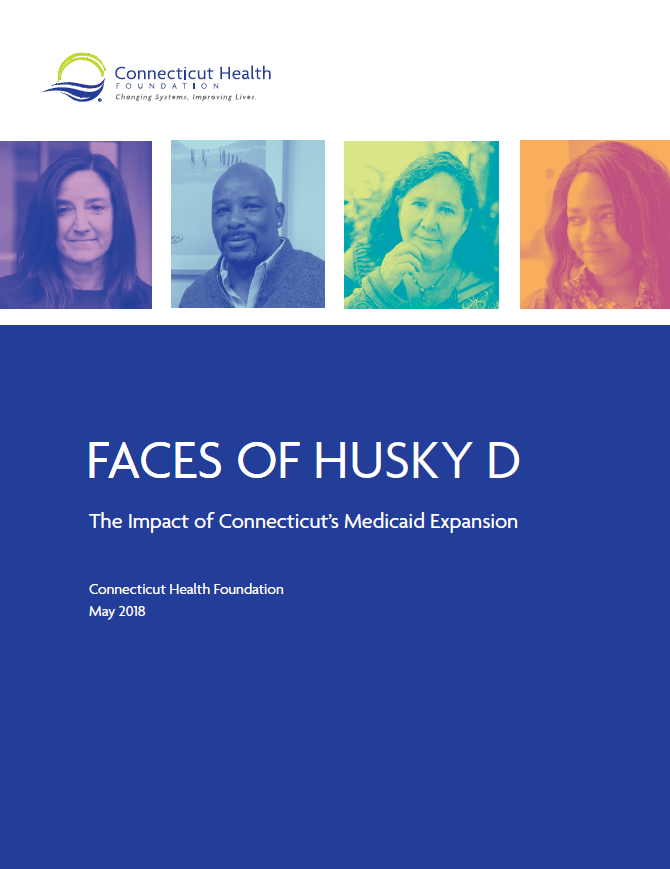To learn more about HUSKY D eligibility and how to apply, visit the CT Department of Social Services.
The decision by Connecticut leaders to expand Medicaid in 2010 led to a significant reduction in the state’s uninsured rate and created a significant source of coverage for preventive health services and behavioral health care, according to a new report released by the Connecticut Health Foundation.
The report examines the impact of HUSKY D, as the Medicaid expansion is known, with profiles of individuals covered and data on how members have used their coverage.
HUSKY D covers adults ages 19 to 64 who do not have minor children and whose income falls below 138 percent of the poverty level – the equivalent of $16,643 for an individual. (For comparison purposes, a person working 30 hours per week at Connecticut’s minimum wage – $10.10 per hour – would earn $15,756 in a year.)
Among the report’s key findings:
- HUSKY D has been an essential part of reducing Connecticut’s uninsured rate from 9.1 percent in 2010 to 4.9 percent in 2016.
- Most people covered by HUSKY D are using their insurance to get care. Just over 80 percent of people with HUSKY D used the coverage for preventive or outpatient health services in 2016.
- Emergency department usage among HUSKY D members is down significantly. The rate of emergency department visits fell by 36 percent from 2012 to 2016.
- HUSKY D is a significant source of coverage for behavioral health care. In 2016, more than one in three HUSKY D members – 36 percent – used their coverage to get care for a mental health condition or substance use disorder.
- HUSKY D is playing a crucial role in fighting the opioid crisis. Before HUSKY D, individuals with substance use disorders were generally not eligible for Medicaid, creating a major barrier to treatment.
- Outcomes have improved for diabetes patients with HUSKY D. A review of more than 500 HUSKY D members with diabetes found that the percentage whose blood glucose was under control rose from 31 percent to 50 percent from 2012 to 2016.
- Connecticut’s Medicaid expansion has been financed almost entirely by the federal government as part of the Affordable Care Act. Currently, the federal government pays 94 percent of the cost of coverage and the state pays 6 percent.
To see a breakdown of where HUSKY D members live by city and town, click here.
To download shareable social media graphics, click here.
